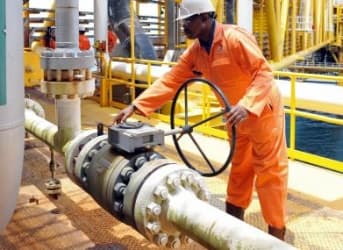OPEC-member Angola, which is dependent on oil for 95 percent of its export revenues, is facing an urgent cash flow problem, and the only way out is external help as the dominoes start to fall.
Angola has sought financial aid from the International Monetary Fund (IMF) to weather the crisis engulfing the African nation due to low oil prices, while President José Eduardo dos Santos has gone as far as to dip into the country’s sovereign wealth fund just to pay civil servant salaries.
The Finance ministry said in a statement: “The government of Angola is aware that the high reliance on the oil sector represents a vulnerability to the public finances and the economy more broadly. The government will work with the IMF to design and implement policies and structural reforms aimed at improving macroeconomic and financial stability, including through fiscal discipline.”
Along with the drop in oil prices, it doesn’t help that Angola’s economy has largely become a kleptocracy—a government run by those gunning for status and personal gain at the expense of the nation. Related: Chevron, Shell, and Total See Credit Ratings Slashed
For those who may argue with this terminology, we can look at the Angolan President’s daughter, Isabel dos Santos, who is worth $3.3 billion and is the richest woman in Africa, according to Forbes. Meanwhile, 68 percent of the Angolan population lives below the poverty line.
President José Eduardo dos Santos has run the country since 1979, but until now, he has avoided seeking aid from the IMF, most likely because the IMF has been known to delve into the state’s finances to locate irregularities—irregularities such as the President’s daughter’s net worth being over 6,000 times Angola’s GNI.
Only a few believe that the actions of the IMF may help bring an end to the opaqueness of the current rule. Related: Oil Hits 5 Month Highs Ahead Of Doha Meeting
“The government is committed to improving transparency in the public finances and the banking sector,” it said in a statement. “There is a strong belief within the government that the continued drive toward enhanced transparency can be accelerated by partnering with an institution like the IMF.”
The discussion between the Angolan government and the IMF is scheduled to be held in Washington DC.
IMF deputy managing director Min Zhu, said in a statement: “The IMF stands ready to help Angola address the economic challenges it is currently facing by supporting a comprehensive policy package to accelerate the diversification of the economy, while safeguarding macroeconomic and financial stability.” Related: Have We Seen The Bottom In Oil Prices?
Though the government has reiterated its commitment to diversify the economy, hopefully, they will walk the talk and solve the fundamental problem in the economy, lest it ends up being a futile exercise.
The Angola crisis is a warning to the other struggling OPEC countries. Though the larger nations are better off, sustained low prices will test their financial stability as well.
The weak links have started to give way, and a few others might find themselves in the same situation as struggling Angola. A nation facing such a severe financial crisis will begin to question the necessity of remaining in OPEC.
By Rakesh Upadhyay for Oilprice.com
More Top Reads From Oilprice.com:
- 70-90% Decline In Well Completions Raises Hope For Oil & Gas
- Oil Up As Bullish Sentiment Returns To Markets
- The Wireless Tech That Will Transform The Energy Industry


















